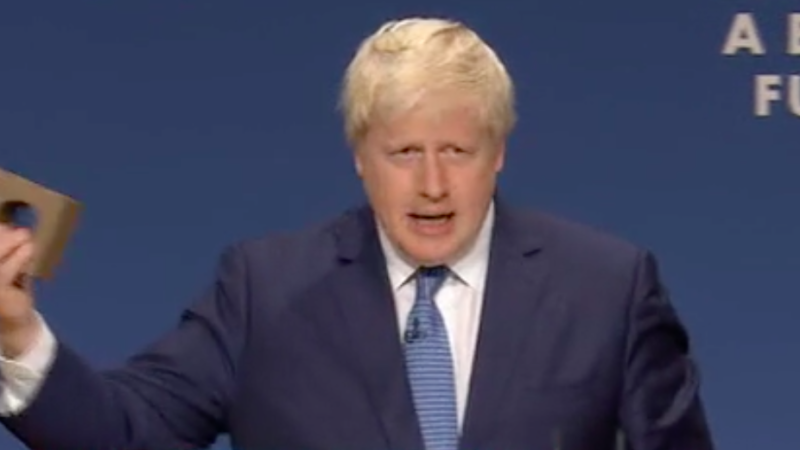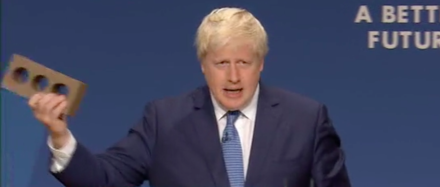
Boris Johnson’s approach to London’s growing environmental challenges gives us an insight into his shortcomings as Mayor.
When elected in 2008 we all knew his reputation. This was the gaffe prone MP whose seemingly endless capacity for causing chaos and embarrassment gave him a fixed status as a media celebrity. His oratorical skills were well known. But back in 2008 it wasn’t clear how the “public school clown” was going to settle into a role of real executive power. From cleaning up our toxic air, to cutting carbon emissions, tackling aircraft noise, to combating fuel poverty, Boris Johnson has failed and missed opportunities at each and every turn.
Broken promises
What quickly became clear was that the Mayor’s oratory skills are his primary, and often sole, weapon, blustering his way from one hapless answer to the next. These skills have provided cover for eight years of dithering and delay which have left London with a reputation as a polluted city that refuses to tackle the causes of climate change.
Bold words and hyperbolic promises are no problem: “I will…take action to make London the greenest city in the world” declared Boris in his 2008 manifesto. As we enter the final months of his mayoralty, however, it’s clear his environmental record is not one to be proud of. London continues to have illegal levels of toxic air, which is now estimated to cause almost 10,000 premature deaths every year. Milestones on the road to cutting carbon emissions are being missed, power shortages are now a serious prospect with energy independence for London looking an increasingly distant prospect and the Mayor refuses to lift a finger to back proposals to divest City Hall’s pension fund from its investments in damaging carbon industries.
Policy failings
At times over the past eight years the policy gaffes seemed almost farcical. The revelation in 2011 that the Mayor was using special vehicles to glue pollution to the roads sounded like a line from a sitcom rather than serious policy. When the Mayor mistakenly referred to reducing emissions of laughing gas I began to wonder if he makes these mistakes on purpose to hide the seriousness of his policy failings.
But there was also a dark side to his administration. For example, when the Mayor’s environment advisor became embroiled in a very public spat with scientists over pollution levels on Oxford Street, with reports of threats made to King’s College unless they ceased publicising research embarrassing to the Mayor. It’s clear that the Mayor is touchy about his environmental record.
Out of touch Mayor
There were certainly times when I felt the Mayor was doing my job for me. When I prepared for the monthly Mayor’s Question Time sessions there was never a shortage of Boris verbiage I could quote. During his mayoralty he has told us wind turbines “couldn’t pull the skin off a rice pudding” and that children should be “bussed in” from the countryside to breathe in London’s air. Sometimes the Mayor’s policy would quite literally shift with the changing weather. In the winter of 2013 a few unexpectedly snowy days left the Mayor with an “open mind” on whether climate change even exists.
If these last eight years were indeed a sitcom or some form of comic novel then none of this would matter. But this is the real world and all these actions have had consequences. The in-tray for the next Mayor will be sizable and some of the biggest challenges in it will be on London’s environment.
Tackling London’s toxic air can be put off no longer. We know what needs to be done. We need an Ultra-Low Emission Zone that lives up to its title and is open for any London borough to join. We need a bus fleet which sets an example to the rest of the world in ultra-low, zero emission technology and a transport authority that doesn’t attempt to spin its way out of trouble with ever more obfuscating press releases on bus retro-fits.
Fuel bank usage on the rise?
On cold homes it is a scandal that a strategic authority on the scale of the GLA has no fuel poverty strategy. Energy bills are a serious concern for Londoners and as the first ‘fuel banks’ are established, it’s clear we need a wraparound approach that ensures no Londoner has to choose between heating and eating.
Tackling climate change is not a problem for tomorrow but one for today. London should be using its global position to act as a beacon for sustainability. It’s been well known for some time that innovation creates new green jobs. What is now increasingly clear is that some of London’s biggest employers are not factoring in the impact of climate change into their risk assessments. Extreme weather on the other side of the globe can hit supply chains and whole industries if plans are not in place to mitigate risk. The last of the top challenges is, in spite of being the most obvious job of a Mayor, one that Boris Johnson has performed worst at – and that’s standing up for London consumers.
In my time as an Assembly Member I have challenged the water and energy companies whenever there have been proposals for a price hike. I’ve met regulators, written consultation responses, met affected families and spoken to the media. Imagine how different things could have been if the Mayor had done that too. What if the “champion” of Londoners had actually stood up for consumers and said enough was enough, for example when Ofwat suggested hiking water prices by 8% last year?
The Boris Johnson travelling circus had a reputation when it arrived at City Hall. It departs our capital city leaving behind toxic air, communities turning to fuel banks to keep warm and an economy dangerously exposed to climate change putting economic stability at risk.
Murad Qureshi AM is Labour’s London Assembly Environment Spokesperson





More from LabourList
‘As metro mayors gain power, Labour must tighten political accountability’
Letters to the Editor – week ending 22 February 2026
‘The coastal towns where young people have been left behind by Whitehall’